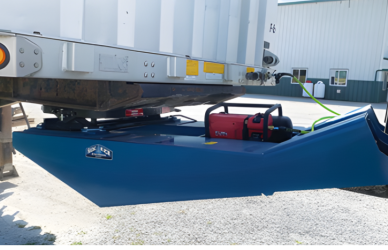A recent update to Michigan’s laws aims to refine the process of setting local roadway speed limits. Previously, Michigan law required speed limits to be determined through an engineering and safety study, with speeds rounded up to the nearest multiple of 5 mph based on the 85th-percentile standard.
Governor Gretchen Whitmer recently signed a bill into law that modernizes the state’s approach to the 85th-percentile speed rule. Sponsored by Rep. Bradley Slagh, the legislation offers the state more flexibility in rounding down the 85th-percentile speed when appropriate.
Under this new law, local officials gain authority to set speed limits within 5 mph of the 85th percentile, rounded to any multiple of 5 mph. This change allows for greater adaptability, as illustrated by Slagh’s example of setting a speed limit at 35 mph on a road with an average speed of 37.6 mph, instead of the previously mandated increase to 40 mph.
Additionally, the bill removes the requirement for local governments to conduct an engineering and safety study to adjust speed limits. Instead, modifications can now be based on traffic engineering practices, ensuring a more objective analysis of highway characteristics.
Furthermore, the law permits speed limits to be set below the 85th percentile if an engineering and safety study identifies hazards to public safety not reflected by the 85th percentile speed, with a minimum threshold set at the 50th percentile speed.
New Jersey is also considering changes to speed limit regulations. Senator Declan O’Scanlon’s bill, S1652, seeks to implement the 85th-percentile formula for setting speed limits on limited-access highways like the New Jersey Turnpike and Garden State Parkway.
He said a change could result in “the smoothest, safest level of traffic flow and inflict the least amount of arbitrary punishment on people behaving reasonably.”
If passed, this legislation would empower state traffic agencies to utilize 85th-percentile studies to establish speed limits, ensuring a data-driven approach.
O’Scanlon asserts that adopting this formula represents a superior method for determining speed limits compared to relying on subjective decisions from politicians and officials. The bill is currently under review by the Senate Transportation Committee, suggesting a potential shift towards evidence-based speed limit regulations in New Jersey.
Source: Land Line











